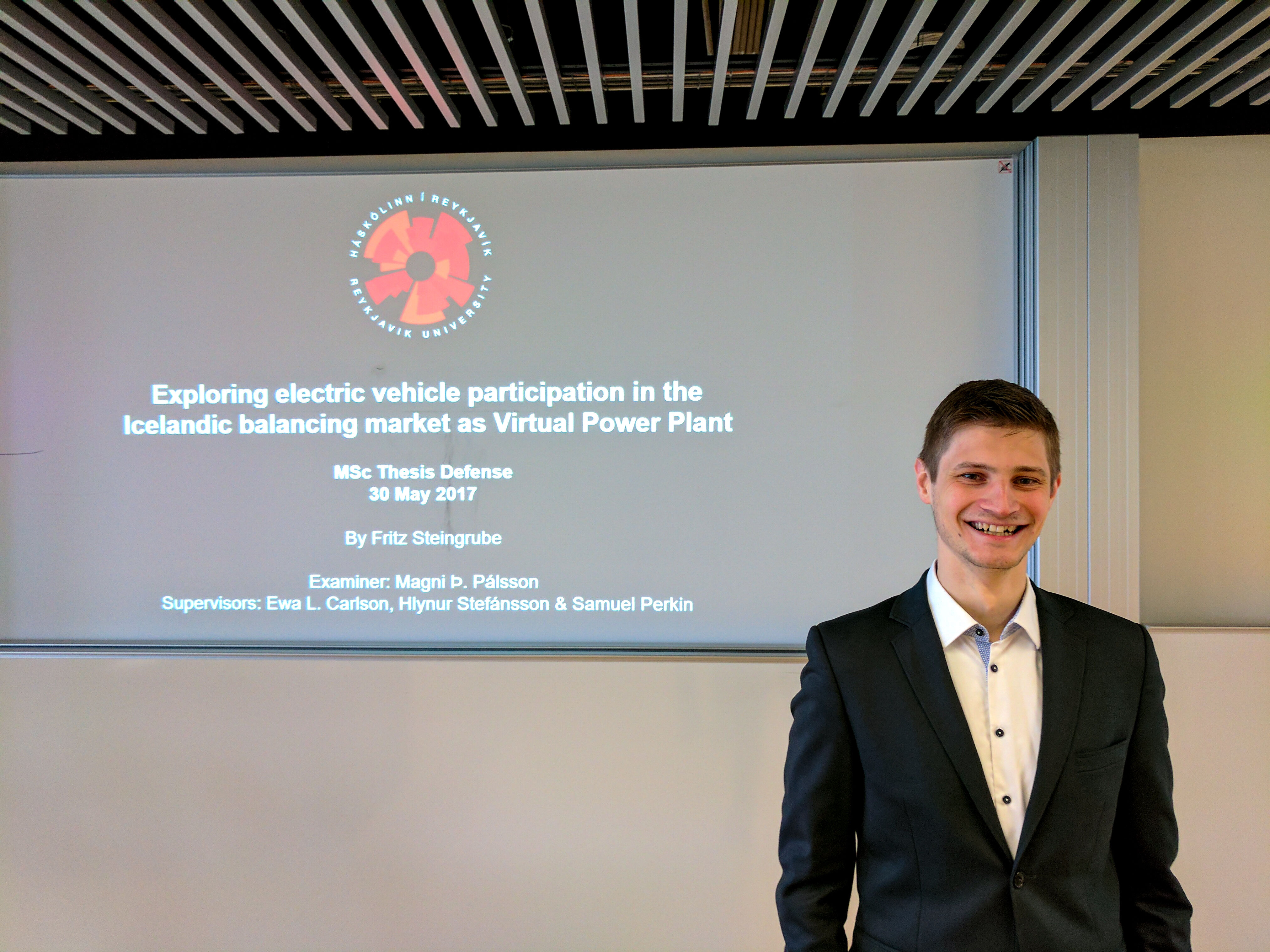MSc Thesis: Exploring Electric Vehicle Participation in the Icelandic Balancing Market as a Virtual Power Plant
Fritz Steingrube successfully defends his master's thesis
REYKJAVIK, May 30 – Master's candidate of Sustainable Energy Sciences, Fritz Steingrube, has just successfully delivered his master's thesis project, exploring electric vehicle participation in the Icelandic balancing market as a Virtual Power Plant. Throughout his work, Fritz was supervised by Dr. Ewa L. Carlson and Dr. Hlynur Stefánsson here at Reykjavik University, along with Samuel Perkin, a PhD student working with Landsnet.

Fritz delves into the motivation behind his project, stating that the electrification of transport sector has been named one of the key measures to mitigate the global CO2 emissions. Further, due to the local energy mix, Iceland has a high potential for effectively reducing CO2 emissions by further increasing the share of electric vehicles (EV) in their fleet.
Explaining further, Fritz indicates that to give incentive for the increased roll-out, financial incentives for individual car owners need to be created. His idea is to capitalize on the fact that small vehicles are rarely travel for longer than an hour per day. Through vehicle-to-grid (V2G) technology, the storage capacities of the EVs could be on the Icelandic balancing market for balancing when the vehicles are not in use.
His research set out to determine if it is possible for a fleet of electric vehicles to be able to compete in the Icelandic balancing market. In order to compete, the vehicles have to be pooled and managed as single acting entity through an aggregator. All vehicles pooled by the aggregator are acting as a Virtual Power Plant (VPP).
To determine the viability of the idea, Fritz's research ran an agent based simulation, modelling the mobility behavior and balancing market using Icelandic data. The results showed that a VPP of EV batteries can in fact participate successfully in the balancing market. Both participating vehicle owners and the VPP operator could accumulate profits, the extend of which would be highly dependent on inter alia battery costs, the electricity retail price, and the minimum bid size for participation in the balancing market.
Congratulations Fritz on an excellent thesis!
